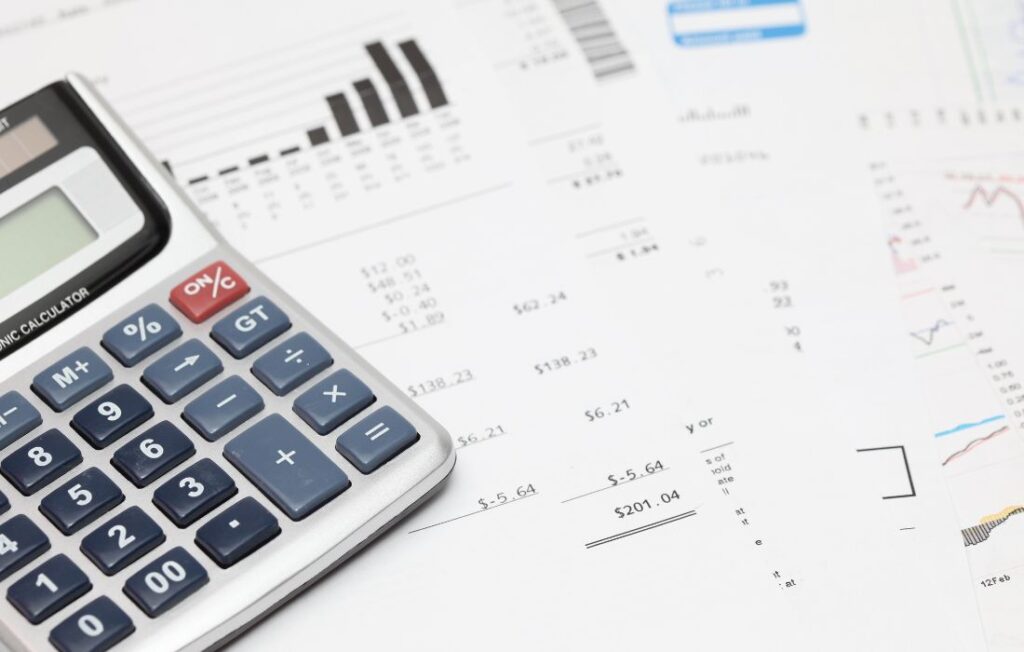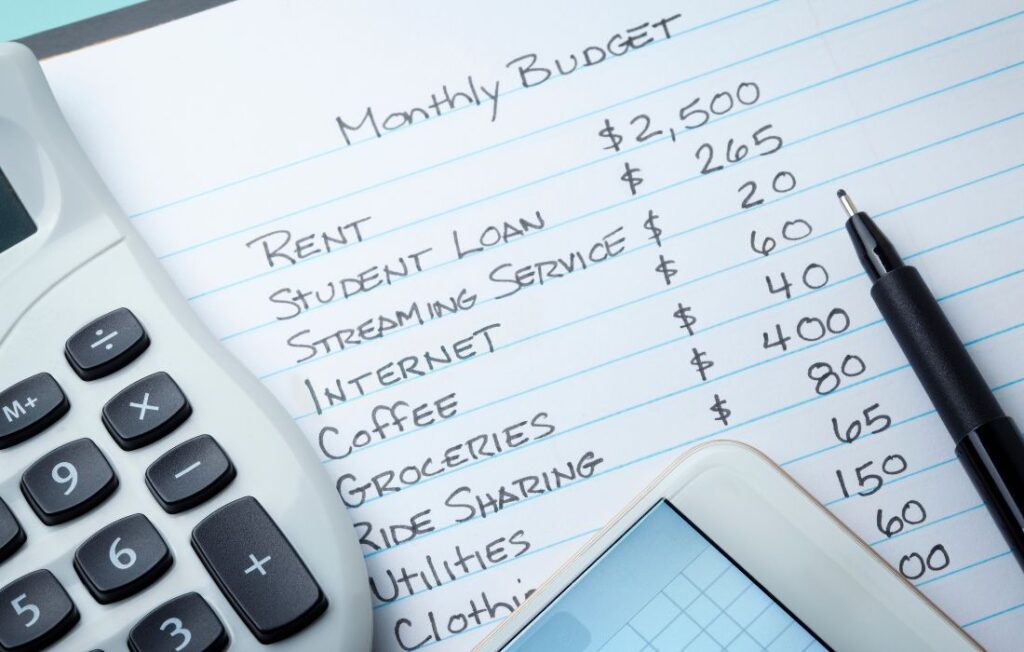I’m a huge fan of to-do lists. As a professional organizer, I rely on to-do lists for my tasks as well as for my clients. As a daily money manager, I see first-hand the struggles people have with money and finances. One solution is a financial to-do list.
I’ve put different tasks in different months, but unless they’re time-sensitive, feel free to move them around if a different month would make more sense for your life. It’s your financial to-do list, so it’s important it works for you.
FREE Monthly Financial To-Do List -Unlock your path to financial ease with our Free Monthly Financial To-Do List! Tailored to help you stay on top of important financial dates, savings, and spending, this guide is the ally you need, no matter your budgeting expertise. Take control of your finances today—without spending a dime!
Disclosure: This post may contain affiliate links, which means we may receive a commission if you click a link and purchase something we have recommended. This commission comes at no additional cost to you. Thank you for all the support. You can read our full privacy policy here
January Financial To-Do List
- Check your progress. How much income did you save/invest in the previous year? A 10%-15% savings objective is a good start and can and should be increased if you’re in a higher income bracket.
- Find your best investment options. Depending on your income and work situation, different types of savings may be more ideal. Work with a financial planner to determine what’s best for you. Consider your debt as well. For example, should you pay down credit card debt rather than invest in the stock market?
- Adjust contribution amounts. In most years, adjustments are made to the maximum amounts you can put in retirement accounts. If you can afford it, increase your contributions to the new limit.
- Between January 1 – March 31, members of Medicare Advantage plans may switch to another plan during the Open Enrollment period. Members can switch between plans or join a stand-alone prescription drug plan. Find out more about Medicare Advantage plans here.
January is Time to Get Organized

February
- Most tax documents are required to be sent by January 31 or postmarked by January 31. February is a great time to get your tax documents in order. Plan now, and don’t wait. They’re not due until April, but time passes quickly. By getting your documents together now, you can beat the rush and get your refund that much sooner.
- Review your payroll documents. If your income has increased, did you also increase your savings investments to match? Try looking into an online savings account, as they are almost always higher than your local branch since their overhead is lower.
- Make your appointment with your accountant or tax preparer. Don’t wait until the last minute!
Navigating Tax Season: Timeless Tips for Every Year
March
- Contribute to your IRA. Contributions to an IRA can be made until that year’s mid-April tax filing date and may offer significant tax savings. This deduction reduces your taxable income for the year, ultimately reducing the income tax you pay.
- Fund your Health Savings Account (HSA). If you have one, the same contribution rules apply to an HSA as to an IRA.
The Ultimate Retirement Guide for 50+: Winning Strategies to Make Your Money Last a Lifetime

April
- Cull your documents. While having older financial information can be helpful, you don’t need to save everything for a lifetime. Instead, check out our previous post on what to keep to help you make sense of the filing.
- Go paperless. If you have proper internet security and passwords in place, going paperless saves both the planet and your filing system.
- Create a master list. Include all financial accounts, URLs, and account numbers. Password protect the document and share it only with those who need to know.
- File your taxes by the mid-April tax filing date for that year.
Clean Up Your Finances This Spring
May
- Evaluate your emergency fund status. Emergencies can happen at any time. For most people, having three to six months of cash on hand at any time is suggested. However, higher-paid workers or people with highly variable incomes may want to have more.
- If retired, check your liquidity. Retired people should have even more cash on hand. This helps protect against market volatility.
Spend Safely: Don’t Run Out of Money in Retirement

June
- Create an investment policy statement. What you are trying to achieve, such as goals, risks, timeline, and criteria all matter. Having a written statement ensures your portfolio is managed in the best way for you. If you work with a financial planner, review this information with them.
- Create a retirement policy statement. This should include spending strategies and how much is included in pensions, Social Security, and IRAs. Review this with your financial planner as well.
- Don’t have a financial planner? Looking for a fiduciary, too? Start here at NAPFA.org (The National Association of Personal Financial Advisors).
Organizing Your Life Documents: A Guide to Keeping Important Information in Order
July
- Mid-year portfolio check-up: How well are your investments working? Now is an excellent time to course-correct if necessary. If you have a financial planner, schedule a time to chat with them about where things stand.
- Audit your costs. If you’re managing your investments yourself, there can be costs associated with trades, etc. Review these as a percentage of the total with the goal of getting them under 0.1%.
- Audit your tax liability. There are many ways to minimize this. Check that you’re taking maximum advantage of tax shelters such as IRAs and HSAs.
Mid-Year Reset: Organize Your Way to a Fresh Start

August
- Estate planning: Whether you’re wealthy or not, married or not, a parent or not, having a solid estate plan is essential. Be sure to include your digital assets as part of this process.
- Review your beneficiaries. If you’ve designated a beneficiary on your retirement accounts, that will supersede anything stated in your will. So, review those designations to ensure they align with what you want.
What is Your Legacy? The Importance of Ethical Wills
September
- Create or review a long-term care plan. Although it’s not the most fun topic, having a solid long-term care plan will help you get the care you need in the living situation you want. Learn more in our long-term care post.
- Plan for holiday expenses: September is an excellent time to plan and budget your money for holiday expenses if you haven’t already created a separate fund for holiday travel and purchases.
October
- Contribute to college funds. If you’re a parent, grandparent, or planning to become one soon, it’s not too early to start setting aside money for college. A 529 plan is one option for this. Speak with a financial planner for more information.
- Medicare open enrollment starts from October 15 to December 7. Also known as the annual election period, it refers to the period during which Medicare plan enrollees can reevaluate their coverage.

November
- Review your health insurance. Open enrollment only comes once a year. So be sure you know what coverage you need. Also, take a look at property/casualty insurance, disability insurance, and other insurance policies.
- Reevaluate your holiday budget, as November is the start of the holiday season. Review your current spending and savings, consider upcoming sales like Black Friday, assess your gift list, and evaluate other holiday-related expenses. Adjustments may be needed to align with your overall financial goals.
December
- Give and give some more. You can gift quite a bit of money to loved ones without a tax penalty. Even better, charitable gifts are tax-deductible.
- Review your portfolio. Sit with your financial planner to ensure you’re making the most of your investment plans.
- Take your required minimum distribution (RMD). For retired adults, this is important. Even if you’re not in the position where you need it to live on, take the money. Then, you can redirect it to a charity or reinvest it.
Follow this financial to-do list, and by the end of the year, you’ll see your financial outlook is much better than at the start of the year.
7 Financial To Dos This December




